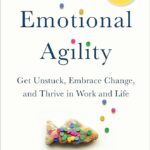Employers may be feeling optimistic about the future, but employees sure aren’t. In fact, according to the Hays 2021 Salary Guide, a shocking number —52% of Ontario employees— are ready to jump ship and look for a brighter future elsewhere.
Why the impending mass exodus? The Hays report noted that reduced social interaction, an increased feeling of isolation along with growing workloads are among concerns cited by Canadian employees.
“COVID-19 has left everyone exhausted and while many businesses are improving, staff are waving a white flag,” said Travis O’Rourke, President, Hays Canada, in a statement. Employees expect a company to have their best interests at heart and we’re now seeing evidence that unsupported teams look for better opportunities. Once we turn a corner on the pandemic or see more signs of job market strength, those employees are gone.”
Engagement Starts with Trust
Leaders often feel isolated and alone. However, it doesn’t have to be that way. While it might seem like getting to really know co-workers as people, especially during a pandemic, feels frivolous, it’s relationships at work that lead to increased engagement and productivity. Specifically, relationships built on trust. While rope courses and trust falls may build camaraderie, trust requires “psychological safety,” which goes a lot deeper. Individuals — and teams — feel safe when they can be vulnerable with their co-workers, engage in constructive dialogue and call out the elephant in the room.
One of the things we’ve seen at The Roundtable, time and time again, is how group coaching creates a safe environment where leaders discuss strategies and find innovative solutions to shared challenges… and, in the process, build unbreakable bonds and trust.
Put Professional Development in the Hands of Your Leaders
The Hays report indicates that what people are looking for in a new role, beyond benefits (53%), is career development (44%). With one-to-one coaching you help one person, with group coaching, you can help many.
You also create ongoing support systems within the organization. By connecting, leaders empower and energize each other. In essence, group coaching is a profound form of community building. It’s the only way to sustainably change behaviour and culture because it puts the accountability of leadership development firmly into the hands of your leaders. It shifts learning from an isolated or on-off event to a collective, shared experience.
Durable Skills
A recent article on Chief Learning Officer spoke about the importance of developing “durable skills.” I love that phrase, because it speaks to the need for sustainable behavioural change and making an impact on organizational culture —the very things that group coaching addresses. Author Mathew J. Daniel says that durable skills constitute a base layer of mindsets and dispositions, and points out that “these skills aren’t just ‘ways of thinking’; they are tangible, teachable and measurable. They include skills like design thinking, … effective communication and leading others.”
As leaders are required to be highly proficient in coaching, communication and leading through today’s volatile times, durable skills position your talent and organization for long-term success.
Here at The Roundtable, we’ve been leading group coaching programs for over 15 years. If you’d like to learn more about how you can convert your existing leadership programming into virtual group coaching programs or how to maximize your existing one-to-one executive coaching programs into high impact group programs that develop durable skills, feel free to reach out to me to discuss your strategic priorities.



